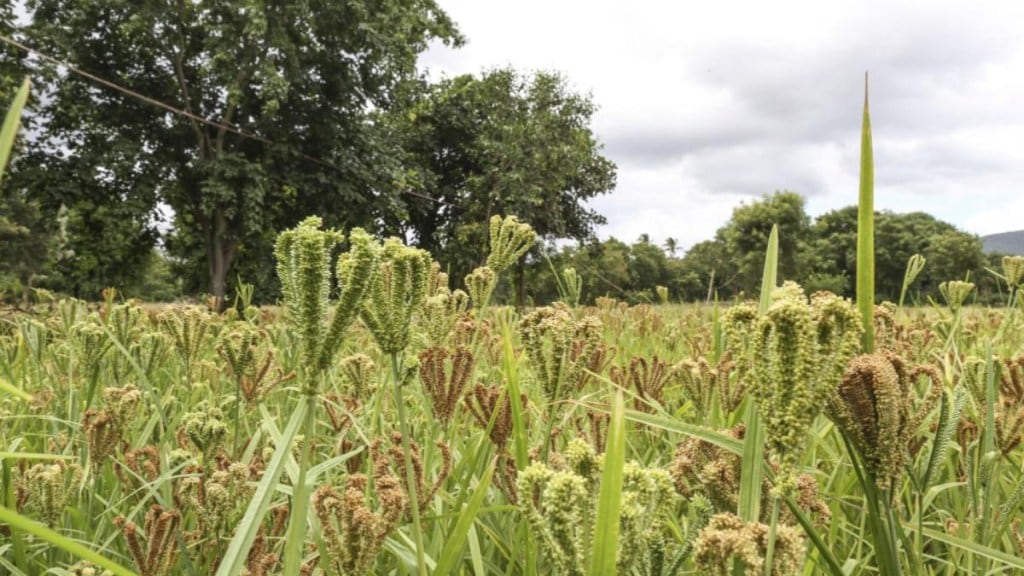Rise in private trade purchase of millets, especially bajra (pearl millet), maize and ragi (finger millet), from farmers have ensured that prices rule 15-20% above the minimum support (MSP) across key growing states including Karnataka, Rajasthan, Maharashtra and Uttar Pradesh.
Robust demand from value-added millets based products introduced by the several corporates including ITC Foods and Tata Soulfull and the demand for animal feed especially poultry and starch industries have have contributed to the rise in prices of these coarse cereals.
“The government’s aggressive promotion of millets at sustainable and healthy crops has also boosted demand for these coarse cereals,” an official said.
Against the arrivals of 1.23 million tonne (MT) of various coarse cereals in mandis of Gujarat, Haryana, Madhya Pradesh, Uttar Pradesh and Andhra Pradesh, the Food Corporation of India (FCI) and state agencies so far have purchased only 0.64 MT of millets under the MSP operations for 2023-24 kharif season. A major chunk of purchases by FCI is Bajra mostly in Uttar Pradesh, Haryana and Gujarat.
The government was aiming to procure 1.54 MT of coarse cereals this season while only 0.73 MT and 0.62 MT of cereals were purchased by agencies in the last two years respectively.
“Earlier farmers used to resort to distress sales of Bajra due to lack of demand, but now it has reversed and farmers are getting better prices than MSP leading to lower procurement by agencies,” an official said. .
Currently mandi prices of maize across key mandis in Punjab, Haryana and Rajasthan are ruling around Rs 2500/quintal – Rs 2600/quintal against the MSP of Rs 2090/quintal for the kharif season (2023-24). Similarly ragi mandi prices are ruling above the MSP of Rs 3846/quintal in the mandis in Karnataka and bajra prices are at present above MSP of Rs 2500/quintal.
“Prices of key millet varieties in the market are currently on an average 15% – 20% above the MSP,” Rajnikant Rai, divisional chief executive, ITC agri-business, told FE.
To boost millet production, developing post harvest management for the farmers and developing market linkage, diversified conglomerate ITC is currently working with farmers producers organisations (FPOs) in Andhra Pradesh and Maharashtra for sourcing millets such as raji, bajra and jowar from the farm gate.
The focus of collaboration with farmers’ collectives also aimed at increasing output, quality of produce and developing post harvest technologies.
“Higher bajra is pushing up the cost of poultry feed and overall cost of production of broiler meat,” Ricky Thapar, Treasurer, Poultry Federation of India said.
The National Food Security Act stipulates monthly distribution of 5 kg of foodgrains – rice, wheat and coarse cereals per head to 800 million beneficiaries. However, the government agencies only procure rice and wheat for distribution under the Pradhan Mantri Garib Kalyan Anna Yojana.
In April 2018, millets were rebranded as ‘nutri cereals’ and the government declared it the national year of millets with the objective of generating more production and consumption. The United Nation General Assembly celebrated last year as the International Year of Millet.
Millets are primarily grown during the kharif season in rainfed areas as these crops are less water and need much less agricultural inputs than rice and wheat.

